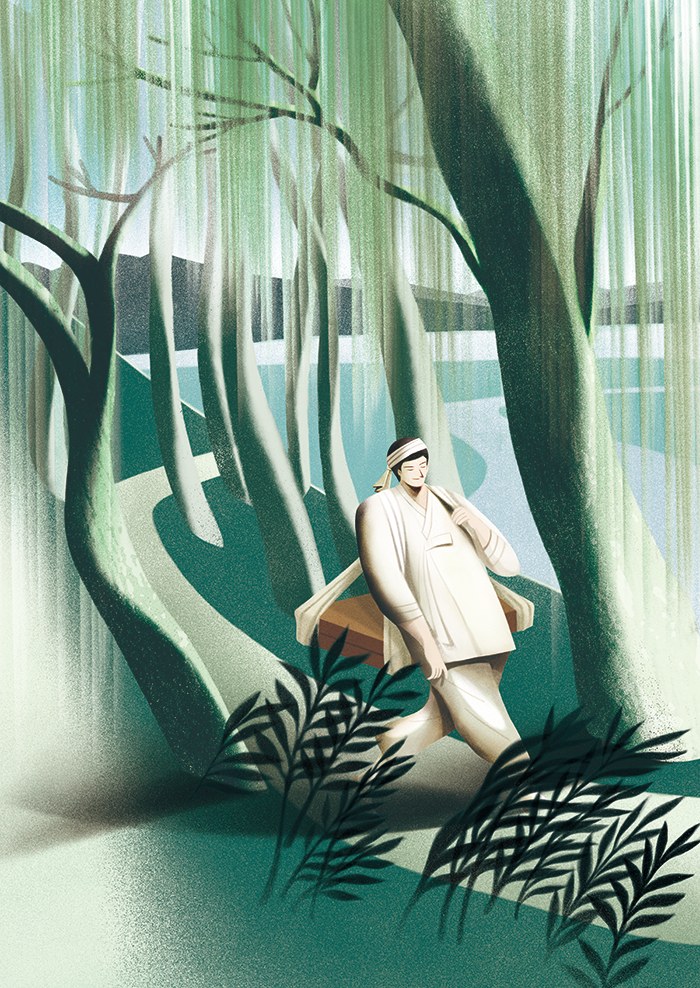
“For a Korean novel titled Yeokma, written in 1948, just three years after Korea gained independence from Japan. In an era when reviving traditional heritage was important, the author, Kim Dongri, powerfully describes the very traditional Korean emotion called han, which means sadness that is not revealed on the surface, with the hope and will to move forward. This scene is from the last part of the story, where the main character, who grew up with a single mother, leaves his hometown after failing his fateful first love. His and his mother’s sad past is hidden behind light steps and facial expressions. This reflects the sentiment of han—the painful past is sublimated into the future.”